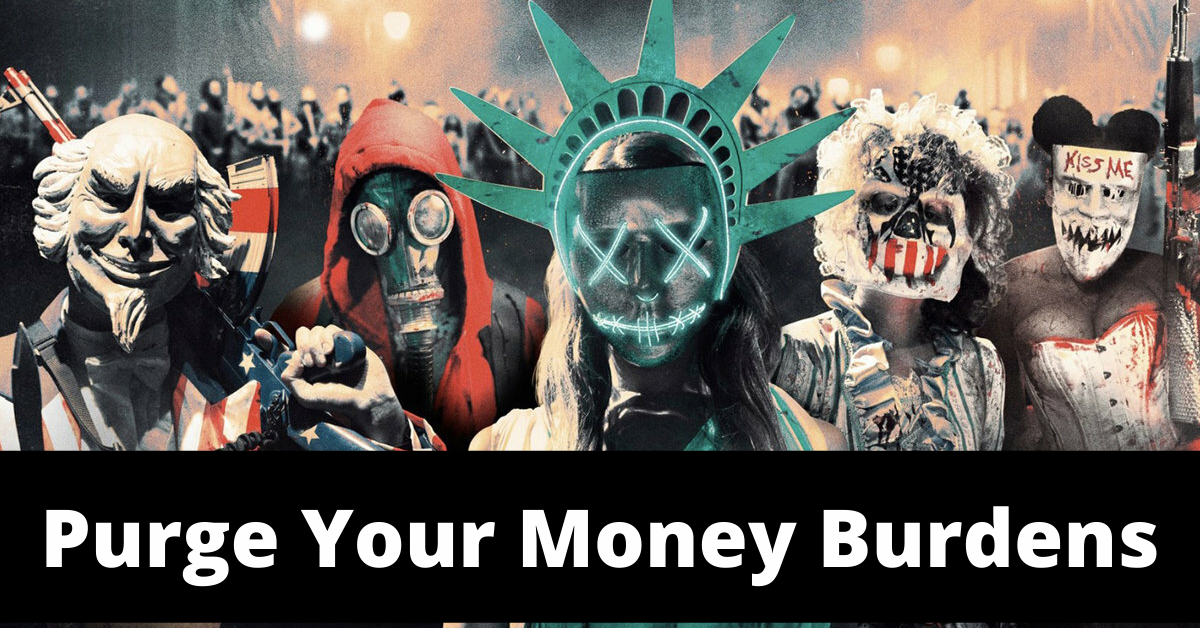As I’m writing this, I am clearing out some old books from my cupboard. I looked at some of them and wondered how it managed to be on my shelves for so long. Some of the books have long served their purposes and probably could do with a new owner.
As I look at the tidier shelves, I struck me that my “financial journey cupboard” was cluttered years back. It was only months later that I realised that some of those things should have been removed.

Our worries and burden comes from things that are cluttered. Think about the last time you had a tough day a work, it might be because of “things are not moving”, “stuff piling up” or “too many things to do at one time” You have a clutter problem. Just like finances, things might have piled up before you could have realise it.
If you are feeling stuck in your financial journey, this article might help you purge the money burdens.
First: List Out Everything
This is the heavy lifting that most financial services consultants will do to help you declutter. Here is a list of things that you have to find before we can purge your burdens
- List out all your incomes sources (last 3 months)
- Print out your credit card statements (last 3 months)
- List out all your insurance coverage
- Your latest loan amount
- Your latest assets amount
In a nutshell, you can see that you are listing our your assets, liabilities, income and expenditure. This is allow you to have a clearer picture of your networth and also cashflow.
Second: Purge
You might have discovered that you might have some income or expenditure that you should purge. Let me help you list out some of the most purgeable items.
- Subscription that are recurring are usually forgotten. They might be your Netflix account, your Spotify account or Seeking Alpha assess. Purge out those that you have not used for the last 3 months but are still paying for it. If you have not use it for the last 3 months, you probably won’t be using it for the next 3.
- Purge out income sources that are not efficient. You might be doing a little of everything (mystery shopping, survey, Network Marketing, Fiverr, Grab). Potentially, you might have became too tired by spreading yourself too thin. Focus on one and let it grow.
- Is there an extra insurance coverage that you have bought years ago? Is there a loan that you can paydown or refinance? Re-analyze your assets and liabilities and purge those that should be gone.
Third: Recreate
Your financial journey is not only about clearing. It is also about recreating. It is only with a clearer lens that you will be able to organise and add for the future.
- Is your insurance serving you well at your current life stage? If not, what can you do about it?
- What kind of assets can I focus on based on my risk appetite? Should you top up your SRS? Should you contribute more to your CPF?
- How can I enhance my income? Is it adding about new skillset?
Move forward. If you are stuck again, don’t be afraid to do another purging exercise until you are satisfied.
Final Thoughts
To those that might be thinking the more the better (especially when it comes to income sources). This exercise helped me a lot during a time I was overstretching. I discovered I had 12 income sources and I was spreading myself extremely thin. I couldn’t focus on all 12 and eventually didn’t do well in all 12. It was really painful experience. I had then purge 9 of them and focusing on 3 right now.
Hope that you will have a better financial journey than I do. Till then, stay safe!
Chengkok is a licensed Financial Services Consultant since 2012. He is an Investment and Critical Illness Specialist. Wealthdojo was created in 2019 to educate and debunk “free financial advice” that was given without context.
Feel Free To Reach Out To Share Your Thoughts.
Contact: 94316449 (Whatsapp) chengkokoh@gmail.com (Email)
Telegram: Wealthdojo [Continuous Learning Channel]
Reviews: About Me
The views and opinions expressed in this publication are those of the author and do not reflect the official policy or position of any other agency, organisation, employer or company. Assumptions made in the analysis are not reflective of the position of any entity other than the author.
